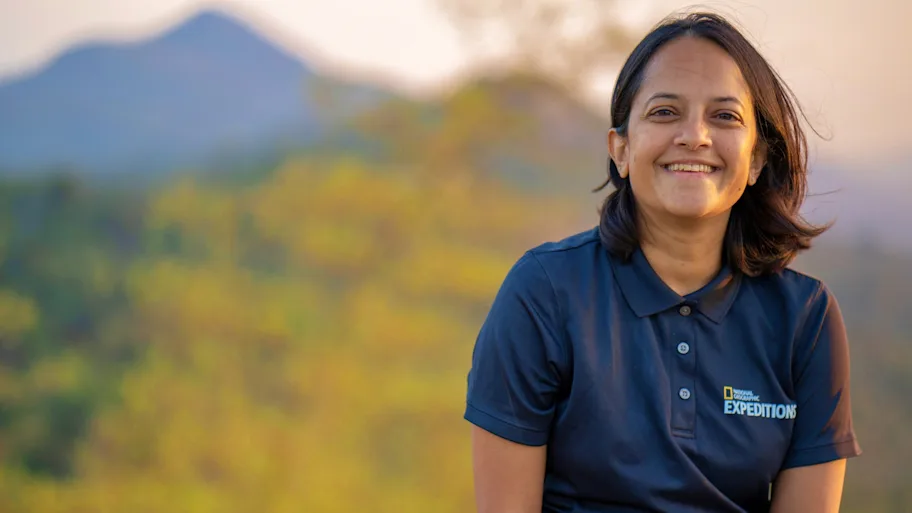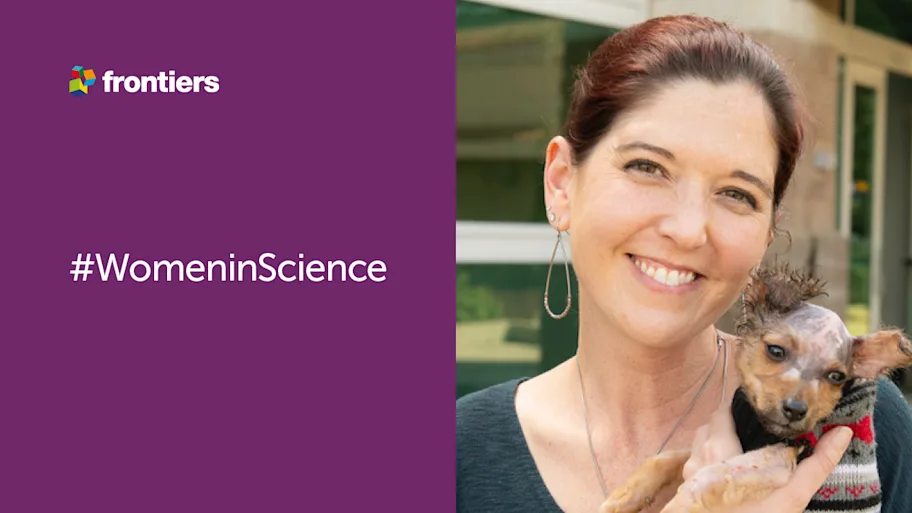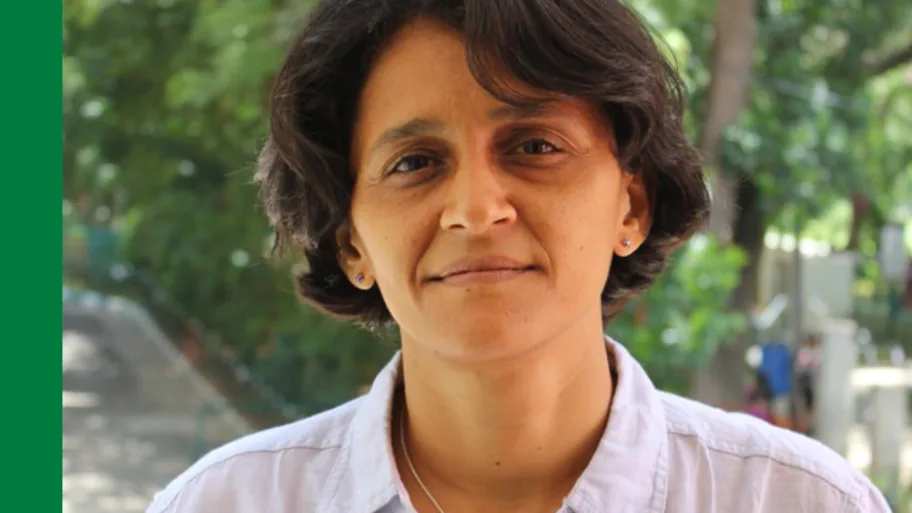
- Science news
- Frontiers news
- Dr Krithi K. Karanth – Finding your Passion and Having an Impact #WomeninScience
Dr Krithi K. Karanth – Finding your Passion and Having an Impact #WomeninScience
Author: Emma Phipps, Journal Specialist
This week, we speak to Dr. Krithi K. Karanth, the Chief Conservation Scientist and Chief Executive at the Centre for Wildlife Studies in Bangalore, India. We discuss the inspiring programmes she has built in India to manage human-wildlife conflict, motherhood, and how her team is contributing to Covid-relief in rural India.

Could you explain your current role?
“I run the Centre for Wildlife Studies, which is a 37-year-old Indian conservation NGO. I took over as Chief Conservation Scientist and Chief Executive about two and a half years ago. As an organization, we are a team of about 60 people. The majority focus on the human dimensions of conservation, while I would say some are engaged in research on individual species. We have a very strong on-the-ground conservation presence which mainly focuses on three programmes, Wild Seve, Wild Shaale and Wild Surakshe.
“I graduated from Duke University in the US in 2008 with my PhD and have been an Associate Professor there since then as adjunct faculty. I’ve also been an explorer with National Geographic for 10 years now and they have supported and continued to support a lot of the work I do.”
Given your father’s (famous Tiger Biologist and Conservationist, Ullas Karanth) career, did you always envision following this path?
“Not at all. I got to watch animals for hours on end which most kids don’t get a chance to do. I loved being outside and watching animals, but I also saw the difficult conservation challenges that he and his colleagues were fighting, and I didn’t want to get into that as a profession. I ended up going to the US for my undergrad which was broadly in Environmental Science, but coming back and doing a research project in India for my Masters at Yale really got me hooked. Often when you have a famous parent with a big shadow you think a lot about whether you want to get into the same field as them. So, I thought long and hard and eventually felt that my interests are very different but complementary, they’re about improving peoples’ lives so that wildlife is treated better, so I guess I actually made up my mind when I was 22 rather than during my childhood.”
Do you think being compared to your father influenced your decision?
“Not really. I was very lucky in that my mother was also a scientist, not in wildlife but in speech language disorders and autism. I also had an extraordinary grandfather who was very well-known in India. He was a writer and thinker, so I grew up around these three people and their friends and colleagues who would come home. Just watching people who were very passionate, I got exposed to all types of people as a kid because they were friends of my parents. I saw that people who are deeply passionate are also the happiest, so the motivation was never the amount of money, it’s really about excelling at things, finding a passion and having an impact.”
What would you say are your biggest achievements?
“I’ve done this now for 23 years, and at the beginning it’s all about being a scientist and publishing in the best journals, because if you go into a Masters or PhD you are kind of brainwashed to think that the only measure of success or failure is what you publish and where you publish. But for the last eight years I have worked very intensively on Wild Seve, Wild Shaale and Wild Surakshe which are conservation programmes directly impacting people and wildlife. I am very proud of these three programmes, so I’m hoping we can do more like this as my level of happiness is much higher when I see real world impact.
"Wild Seve assists with immediate financial losses due to conflict, and in the long-term tries to help people mitigate it better. With Wild Shaale, it’s very much nurturing the next generation to view the environment and wildlife differently. With Wild Surakshe, we started by educating remote communities about conflict and zoonoses, and how to stay safe. Since September, we have run 150 workshops with more than 4,000 people who live in remote parts of India that government agencies do not reach. This week we decided that we are going to get into COVID-19 relief; although that’s not our mandate as a wildlife NGO, we want to help the people living in these rural areas to cope. We have now launched a fundraiser and a campaign focusing on adopting these remote village primary health centres in and around wildlife parks to help the communities called ‘Adopt a Primary Health Centre’. I didn’t train as a Health Professional, but in the end keeping the larger goal of improving and assisting people in turn means they should be more appreciative of nature.”
Congratulations on being the first Indian and Asian woman to win the ‘Wild Innovator Award’! Do you hope that this will serve as inspiration to other Asian women in your field?
“I hope so, I am very grateful that the initiative is completely women-backed as it is very rare to find something that is completely supported by women. Secondly, identifying female scientists in conservation matters and picking these twelve remarkable people and supporting them is huge for women worldwide. I would have liked to see a little more diversity, but I think for a first go it is fantastic.”
What would your advice be to a young female student starting in science now?
“In some sense, choosing to become a mum or not is a huge factor in these decisions. If you do not want a family, you can work at the same pace as any man. If you are clear that you want a career and that you want to balance that with family and kids then you need to make time for that; you’re never going to be amazing at everything at the same time so just remember to pause and don’t be so hard on yourself. I think women, including myself, are often just too hard on themselves because we want perfection all the time and want to be the best at everything, but you’re not going to always get that. Take time out for yourself and pace yourself. I run my life like a sprint, but it’s a marathon and I keep having to remind myself of that.”






